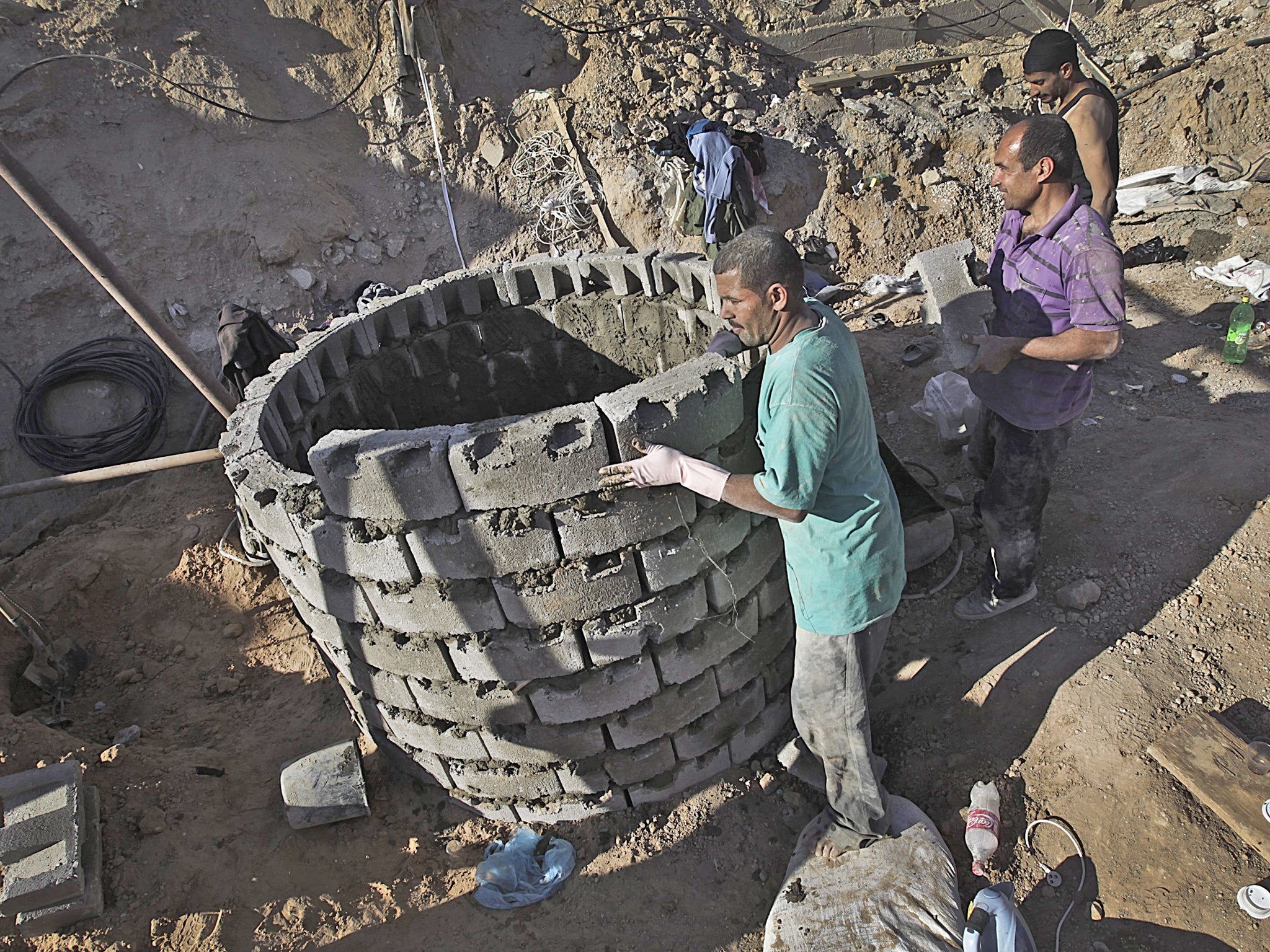Rafah’s smuggling tunnel diggers are back in business

For eight days, the sounds of illegal commerce at the ragged southern edge of the Gaza Strip were silenced by the pounding thrum of battle.
Israeli military jets bombed the sandy stretch of land just a stone’s throw from Egypt each day, hoping to collapse the underground avenues for food, cars, medicines and weapons that support Hamas’s rule in Gaza.
Ahmad al-Arja, a 22-year-old engineering student, was among the army of diggers forced to stop work during the conflict. But minutes after Israel and Hamas reached a ceasefire on the evening of 21 November, his boss was on the phone. “He said, ‘Come on, count on God, and tomorrow morning, start digging,’ ” Arja recalled.
The business of Rafah is the tunnel network that circumvents the Israeli blockade of Gaza, and business once again is booming. For Israeli leaders, who are seeking assurances since the recent ceasefire that Hamas be prevented from restocking its weapons arsenal, the return of tunnel commerce poses a strategic challenge.
Since leaving Gaza seven years ago, Israel’s military has lost its on-the-ground ability to stop tunnel smuggling. Since the ceasefire, the Israeli Prime Minister Benjamin Netanyahu has sought guarantees from the Egyptian President Mohamed Morsi that he will do more to prevent the trade into Gaza — a diplomatic negotiation between uneasy neighbours that in the past has proved fruitless.
As Israel has found in trying to suppress rocket fire from Gaza, an airstrike campaign against the tunnels provides a respite, not a solution. “Our expectation of Egypt, and the rest of the international community, is to stop Hamas from rearming,” said Mark Regev, a spokesman for Mr Netanyahu. “We believe they came out of this latest round significantly depleted in terms of rockets and missiles. The way to prevent a future round is to prevent their ability to rearm.”
Major Avital Leibovitz, an Israel Defense Forces spokesman, said there was so far no evidence any new arms shipments have gone through the tunnels since the ceasefire.
Israel targeted 140 tunnels during the recent operation, severely damaging dozens of passages beneath Gaza’s nearly seven-mile border with the Egyptian Sinai. The bombs buried entrances, destroyed concrete-reinforced walls and cratered the muddy access roads used by flatbed trucks that deliver goods across the Strip.
Hamas security officials who monitor the tunnels say at least 50 were collapsed along one mile-long stretch. Diggers think that hundreds of tunnels span the border. But as the Arja family and others toil under a warm winter sun after the cease-fire make clear, none of the tunnels will remain dormant for long.
Subscribe to Independent Premium to bookmark this article
Want to bookmark your favourite articles and stories to read or reference later? Start your Independent Premium subscription today.

Join our commenting forum
Join thought-provoking conversations, follow other Independent readers and see their replies